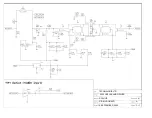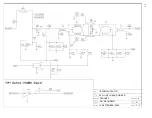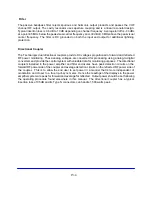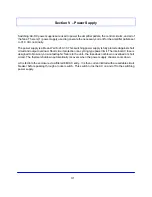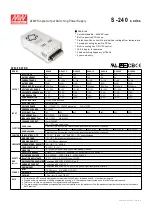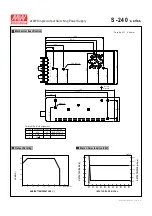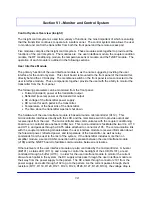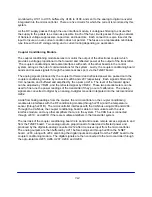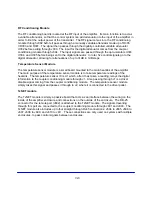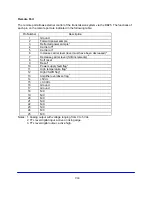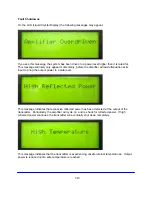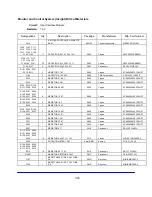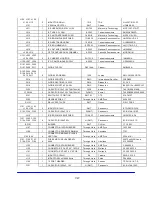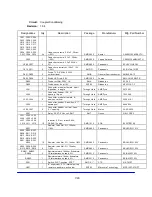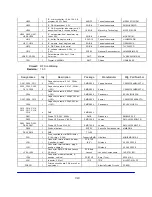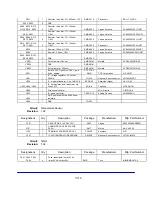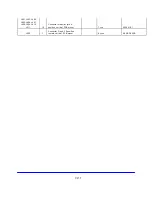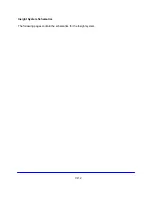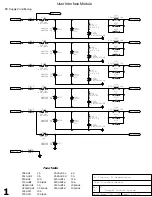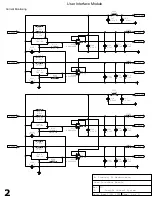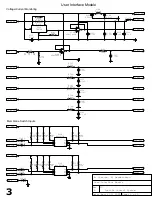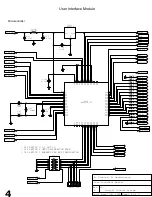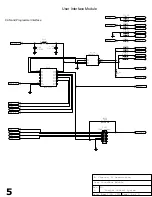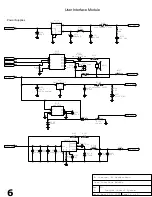
VI-3
RF Conditioning Module
The RF conditioning board is located at the RF input of the amplifier. Its main function is to act as
a variable attenuator, so that the control system can add attenuation to the input of the amplifier in
order to limit the output power of the transmitter. The RF signal comes in to the RF conditioning
module through J302 before it passes through a manually variable attenuator made up of R305,
VR303, and R307. The signal then passes through the digitally-controlled variable attenuator
U302 before exiting through J303. The input for the digital attenuator comes from the coupler
conditioning module through J304. The input signals are passed through the opto-isolators U303,
U304, and U305 before being sent to the digital attenuator. In total, five control signals go to the
digital attenuator, allowing for attenuations of up to 31dB in 1dB steps.
Temperature Sensor Module
The temperature sensor module is a small board mounted to the main heatsink of the amplifier.
The main purpose of the temperature sensor module is to take temperature readings of the
heatsink. The temperature sensor IC is U1 which, after it has taken a reading, relays the digital
information to the coupler conditioning module through J1. Also passing through J1 is a driver
disable signal coming from the coupler conditioning module. The temperature sensor module
simply takes this signal and passes it through to J2, where it is connected to the driver pallet.
TxNET module
The TxNET module is simply a passive board that acts as an interface between the wiring on the
inside of the amplifier enclosure and connections on the outside of the enclosure. The DB-25
connector for the remote port (J602) is attached to the TxNET module. The signals travelling
through this port are connected to the coupler conditioning module through J601 and J603. The
TxNET module also includes up to four straight through RJ45 connections: J604 to J605, J606 to
J607, J608 to J609, and J610 to J611. These connections are only used on systems with multiple
enclosures, to pass control signals between enclosures.







